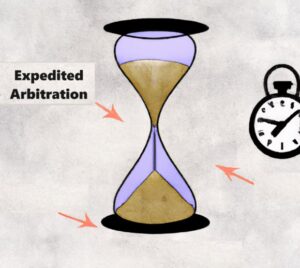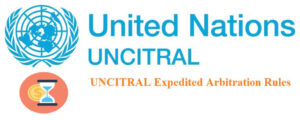In recent years, increasing global mobility has driven a rise in dual nationality cases in investment treaty arbitration, posing significant challenges to the investment treaty regime, which relies on the principle of nationality. This principle seeks to prevent individuals from bringing claims against their own State, thereby maintaining a clear distinction between foreign and domestic […]
UNCITRAL Arbitration
Arbitrations Involving International Organisations
It is widely acknowledged that international organisations proliferated in the aftermath of World War II,[1] although preliminary forms had existed earlier.[2] Major international organisations are universally recognised. These include the United Nations (UN), the United Nations Educational, Scientific and Cultural Organisation (UNESCO), the World Trade Organisation (WTO), the World Bank, the International Monetary Fund (IMF), […]
Expedited Arbitration
Expedited arbitration (or fast-track arbitration) has gained traction in recent years, in response to the length and cost of traditional international arbitration. The first expedited arbitration scheme appears to have been introduced in the 1992 Arbitration Rules of the Geneva Chamber of Commerce and Industry Arbitration Rules (“CCIG”).[1] Today, most leading arbitral institutions have adopted specific […]
Document Production in International Arbitration
Document production is one of the most controversial yet essential steps in international arbitration. Since cases are generally decided based on documents rather than oral testimony, document production can be a powerful tool for discovering evidentiary material crucial to winning an arbitration.[1] It is not surprising that arbitral proceedings commonly include a document production phase. […]
The Costs of Arbitration
One of the most common questions claimants have prior to starting arbitration proceedings are the costs of arbitration, whether they can be estimated in advance, and how they can be reduced. The costs of arbitration, in addition to an arbitration’s duration, are an important if not determinative factor in a claimant’s decision whether to start […]
Pre-Conditions to Arbitration Are A Question of Admissibility: Hong Kong Decision C v D [2022] HKCA 729
In a recent decision, C v D [2022] HKCA 729, the Hong Kong Court of Appeal held that pre-conditions to arbitration are a question of admissibility, instead of jurisdiction. Hence, it refused to set aside a partial arbitral award for lack of jurisdiction. Multi-tiered arbitration clauses, containing pre-conditions to arbitration, such as mandatory cooling-off periods, […]
Partial Awards on Unpaid Costs in International Arbitration
Unpaid costs in international arbitration are relatively common. Most rules of arbitral institutions provide that the parties must bear the costs of arbitration in equal shares. Difficulties may arise when one of the parties, usually the respondent, refuses to pay its share of advances on costs to cover the expenses related to the arbitration, including […]
UNCITRAL Expedited Arbitration Rules
On 9 July 2021, the United Nations Commission on International Trade Law, commonly known as UNCITRAL, adopted the UNCITRAL Expedited Arbitration Rules, which came into force on 19 September 2021 (the “(UNCITRAL) Expedited Rules”). UNCITRAL has also published a Draft Explanatory Note to the Expedited Rules (the “Explanatory Note”), containing useful comments on the application […]
Coronavirus (COVID-19) and Courts: Moving from Litigation to Arbitration?
The global difficulties caused by the coronavirus (COVID-19), various State measures imposing restrictions on the movement of people, social distancing and complete lockdowns, while necessary to protect health, are inevitably having an impact on litigation in national courts, globally. In certain countries courts have had to limit, or to even entirely close, their operations due […]









